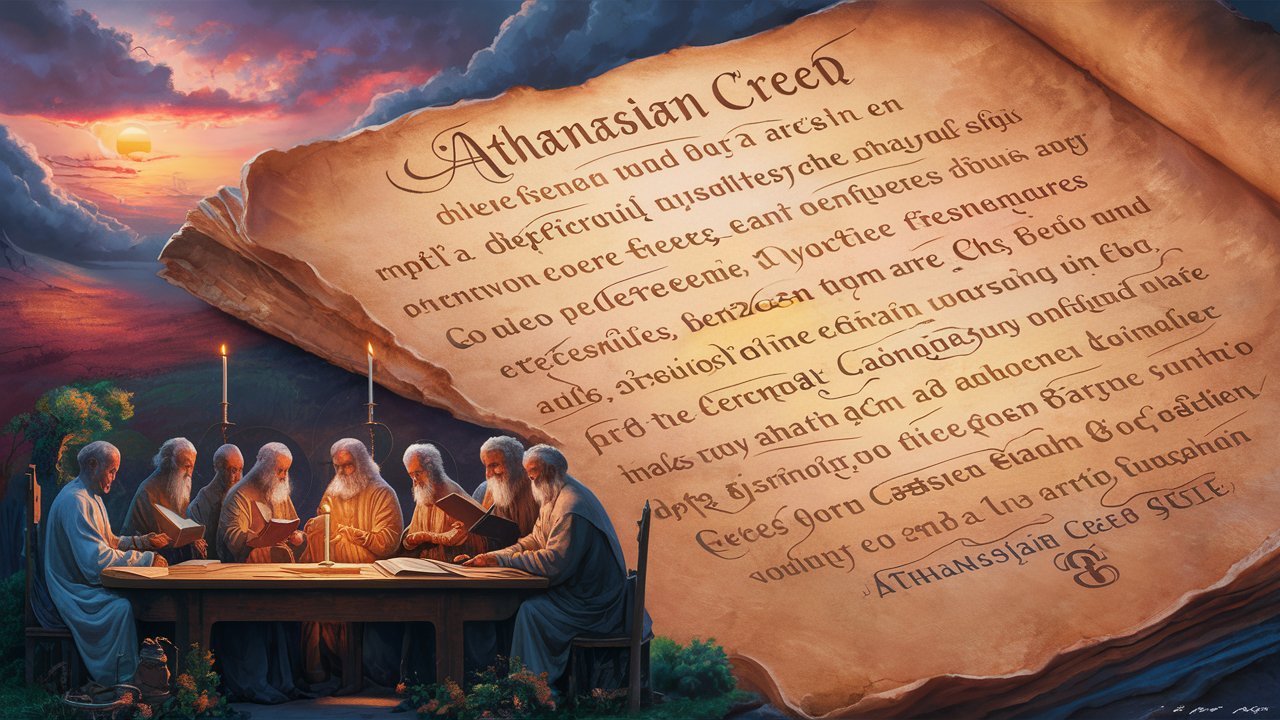
The Athanasian Creed stands as one of the key statements of Christian faith, yet many people know little about its origins or significance. Crafted in the early centuries of Christianity, this creed delves into the complex nature of the Trinity and the incarnation of Christ. Unlike the Apostles' Creed or the Nicene Creed, the Athanasian Creed is less commonly recited in modern worship but remains a cornerstone for understanding orthodox Christian beliefs. Why does this ancient text matter today? How did it shape theological discussions? Let's uncover 20 intriguing facts about the Athanasian Creed that highlight its enduring importance and fascinating history.
What is the Athanasian Creed?
The Athanasian Creed is a statement of Christian faith that focuses on Trinitarian doctrine and Christology. It's not as well-known as the Nicene or Apostles' Creeds but holds significant importance in Christian theology.
-
The Athanasian Creed is named after Athanasius of Alexandria, a 4th-century bishop known for his defense of Trinitarianism. However, scholars believe he did not write it.
-
This creed is also called the "Quicunque Vult," from its opening words in Latin, meaning "Whosoever wishes."
-
Unlike other creeds, it is primarily used in Western Christianity, particularly within the Roman Catholic, Anglican, and Lutheran traditions.
Historical Context
Understanding the historical backdrop of the Athanasian Creed helps appreciate its significance and purpose.
-
The creed likely originated in the 5th or 6th century, long after Athanasius's death.
-
It was written in Latin, which was the scholarly and liturgical language of the Western Church at the time.
-
The Athanasian Creed emerged during a period of intense theological debate about the nature of the Trinity and Christ.
Structure and Content
The structure of the Athanasian Creed is unique compared to other Christian creeds.
-
It is divided into two main sections: the first focuses on the Trinity, and the second on the Incarnation of Christ.
-
The creed is notable for its detailed and repetitive style, emphasizing the equality and unity of the Father, Son, and Holy Spirit.
-
It includes anathemas, or condemnations, against those who do not hold to its teachings, which is uncommon in other creeds.
Theological Significance
The Athanasian Creed holds a special place in Christian theology due to its detailed exposition of the Trinity and Christology.
-
It affirms the co-equality and co-eternity of the three persons of the Trinity, countering Arianism, which denied the full divinity of the Son.
-
The creed also addresses the dual nature of Christ, affirming that he is both fully God and fully man.
-
It serves as a theological safeguard, ensuring that believers adhere to orthodox Christian beliefs.
Usage in Worship
While not as frequently recited as other creeds, the Athanasian Creed still plays a role in Christian worship.
-
In the Anglican tradition, it is traditionally recited on Trinity Sunday.
-
Some Lutheran churches include it in their liturgy, especially during special occasions.
-
The Roman Catholic Church used to require its recitation during Prime, one of the canonical hours, but this practice has largely fallen out of use.
Modern Relevance
Despite its age, the Athanasian Creed continues to be relevant in contemporary Christian thought.
-
It is often studied in theological education for its clear articulation of Trinitarian doctrine.
-
The creed is cited in ecumenical dialogues as a common ground for understanding the Trinity.
-
It remains a touchstone for discussions on the nature of God and Christ in modern theology.
Controversies and Criticisms
Like many ancient texts, the Athanasian Creed has faced its share of controversies and criticisms.
-
Some modern theologians criticize its use of anathemas, arguing that they are too harsh and exclusionary.
-
Others question its authorship and historical accuracy, given that it was not written by Athanasius himself.
Final Thoughts on the Athanasian Creed
The Athanasian Creed stands as a cornerstone of Christian theology. Its detailed statements on the Trinity and Christology have shaped Christian beliefs for centuries. This creed emphasizes the importance of understanding the nature of God and the relationship between the Father, Son, and Holy Spirit. Despite its complexity, the creed remains a vital part of Christian liturgy and education. Knowing these facts helps appreciate the depth and history behind this significant document. Whether you're a theology student, a history buff, or just curious, the Athanasian Creed offers a rich tapestry of faith and doctrine. Keep exploring, and you'll find even more layers to this fascinating piece of Christian heritage.
Was this page helpful?
Our commitment to delivering trustworthy and engaging content is at the heart of what we do. Each fact on our site is contributed by real users like you, bringing a wealth of diverse insights and information. To ensure the highest standards of accuracy and reliability, our dedicated editors meticulously review each submission. This process guarantees that the facts we share are not only fascinating but also credible. Trust in our commitment to quality and authenticity as you explore and learn with us.


